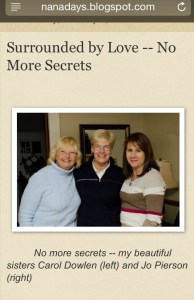On May 21, I presented my workshop titled “Standards of Practice for Adoptive Parents: Ethics, Economics, and Responsibilities” at the annual conference of the Joint Council on International Children’s Services in New York City.
(A few disclaimers and a bit of context: I was the first executive director of JCICS, from 1994 to 2000. I have no connection with them anymore, except insofar as some of the folks from those days are good people and remain good friends. JCICS has changed a lot since I was there, from an umbrella group of international adoption agencies to a more broadly-focused nonprofit for global child welfare issues. I am guessing most of the conference attendees were adoption agency-affiliated, mostly administrative and executive staff. My workshop was a PowerPoint presentation; if anyone wants the slides, I can share them. My plan here in my blog is to share the main points, providing narrative similar to what I provided at the conference.)

There is a perfect storm in adoption right now:
* The number of children being internationally adopted has dropped dramatically, but the number of children needing families remains high.
* Adoption agencies are closing, including those certified by the Council on Accreditation.
* There is an increased volume of adult adoptee voices being heard, and their experiences and insights are becoming better known and respected.
* There is an explosion of Internet postings about fraud in international adoptions.
* There is some assent within the Christian evangelical community–recent big players in the international adoption arena–regarding fraud.
* Increasing numbers of adoptive parents are searching for their internationally adopted children’s first/birth families privately, after adoption, without agency assistance or knowledge, and while their children are little.
* Awareness and connections with birth/first families are increasing.
Given all this, given this perfect storm, where do we begin?

These are, to me, the minimal Standards:
1. Citizenship. All adoptive parents–whether they adopted in 1956 or in June 2013–must ensure that their internationally adopted children are citizens of the United States. It is an ethical outrage that this is even necessary to discuss (again and again, still). Read here for more information.
2. Access to Original Birth Certificate. All adoptive parents should make every effort for their children to have access to their original birth certificate. Whether a child is adopted within the US or internationally, they should have access to their original birth certificates. I realize that this is difficult (if not impossible) for genuinely abandoned children. Some children don’t arrive in the US with birth certificates because their birth was not recorded in any official way. Many children however do have birth certificates. Still. All of them deserve access to this basic, too-often-taken-for-granted legal information: the birth certificate that non-adopted people have, that provides them with basic, vital information about who they are. It’s a human right.
3. DNA Testing. All adoptive parents should be aware of options regarding DNA testing, and offer these options to their children. DNA testing is relatively cheap these days, and provides an astonishing amount of information. Most non-adopted people have a decent medical history, a good sense for what runs in the family. Adoptees often do not. DNA testing would fill in some of those missing blanks at the doctor’s office. DNA testing can also connect adopted people to their birth family, or to more distant relatives. DNA testing also can let people know if they are Sudanese, Irish, German, Colombian, or a combination thereof.
4. Role Models/Mentors. All adoptive parents should make every effort for their adopted children to have role models around them who look like them, as well as mentors and friends who are adoptees. Real people, real friends, folks who are over to the house for coffee, parties, barbecues. Ideally, these people are in the adoptive parents’ lives and community prior to adoption. Access to role models and to adoptees as mentors can be especially important when kids become teenagers; it’d be great to have them while they’re still in elementary school.
The last two items from my PowerPoint slide above, Guidelines for Connections with First Families and Consideration of New Paradigms in International Adoption, will be the subject of an upcoming post. I will also add additional Standards of Practice.





